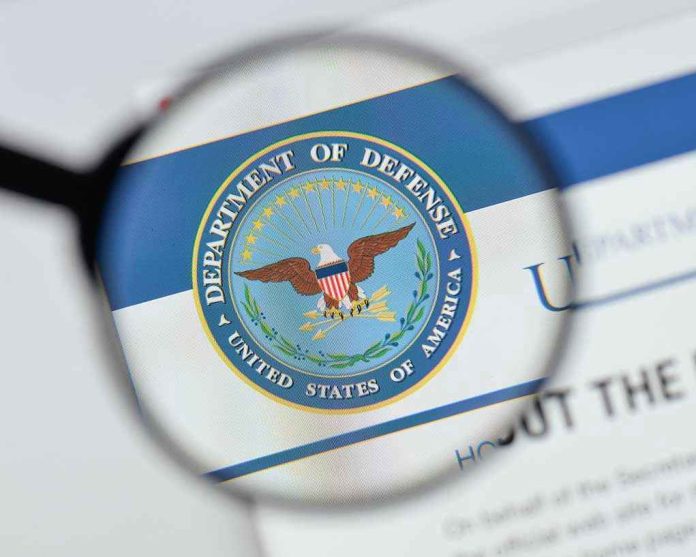
President Trump’s proposal to rename the Department of Defense to the “Department of War” signals a bold shift toward historical military assertiveness.
Story Highlights
- President Trump proposes renaming the Department of Defense to the Department of War.
- The proposal aims to reflect historical military victories and assertiveness.
- Congressional approval may be required, though Trump suggests otherwise.
- The move is unprecedented in modern U.S. history and has sparked debate.
- The change could influence global perceptions of U.S. military policy.
Trump’s Proposal and Its Rationale
President Donald Trump proposed renaming the Department of Defense (DoD) to its original name, the “Department of War.” He argues that the current name is “too defensive” and believes the historical title better represents the nation’s military achievements and readiness to act offensively if needed. This unprecedented move in modern U.S. history is designed to project strength and revive historical symbolism.
Trump’s proposal is framed as a return to historical roots, emphasizing American military strength. The original “Department of War” title was used from 1789 to 1947 before it was changed to the Department of Defense as part of post-World War II restructuring. Trump’s suggestion comes amid discussions about U.S. military policy and global security challenges.
Legal and Institutional Considerations
Renaming a federal agency like the Department of Defense involves navigating legal and institutional hurdles. Although President Trump claims congressional approval may not be necessary, historical precedent indicates otherwise. Congress holds legislative authority over federal agency names, and the original renaming was enacted by the National Security Act of 1947. Defense Secretary Pete Hegseth has been tasked with reviewing the proposal, but no formal executive order or congressional action has been reported.
The proposal has sparked debate over its potential implications. Supporters argue it could restore historical pride and demonstrate a willingness to act decisively, while critics warn it might undermine diplomatic efforts and reinforce perceptions of American militarism. The change could have significant economic, social, and political impacts, including administrative costs and public discourse on militarism and national identity.
Implications and Expert Perspectives
In the short term, rebranding the Department of Defense to the Department of War could lead to confusion and administrative expenses. In the long term, it might signal a shift in U.S. military identity from a defensive to a more aggressive stance, impacting international relations and perceptions of U.S. policy. Military historians note the original name reflected a different era of U.S. military policy focused on warfighting.
Experts suggest that while the proposal might be viewed as political theater, it highlights broader tensions over U.S. military identity and global perception. The debate underscores the complexity of balancing historical symbolism with contemporary military strategy and diplomacy.
Sources:
CBS News – Trump Defense Department to Department of War
The Independent – Trump Hegseth Department of Defense War
KOMO News – Department of Defense to be Renamed
Military Times – Trump Hegseth Float Renaming Defense Department





